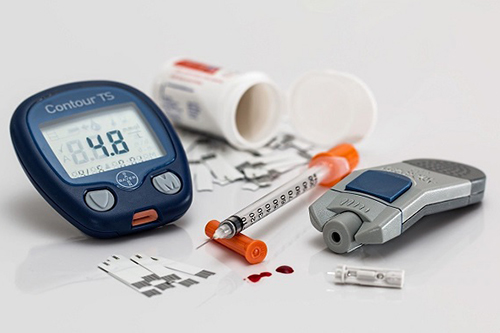Even before the COVID-19 pandemic, the point-of-care testing industry was investing millions of pounds to develop rapid tests to tell us the cause of respiratory infections. The pandemic has accelerated this process. In an editorial published in the British Journal of General Practice today [17 November], researchers from the University of Bristol’s Centre for Academic Primary Care ask if we know enough about these tests to merit their widespread use in primary care.
The editorial suggests that like a new medicine or vaccine, the safety, clinical and cost-effectiveness of rapid point-of-care tests should be investigated in carefully conducted clinical trials before they are introduced into widespread use.
Alastair Hay, Professor of Primary Care in Bristol Medical School: Population Health Sciences (PHS) and co-author, said: “Rapid point-of-care tests are attractive, because traditional laboratory methods take hours to days, often too long for clinical decision making. They can deliver results in less than one hour, so what’s not to like?
“The main issue is we do not understand if they are accurate enough, effective enough or cost-effective enough to merit widespread introduction. This is not a problem, because accuracy, effectiveness and cost-effectiveness can be investigated – just as we would a new medicine or vaccine.
“Rapid point-of-care tests have been advocated as key to future antimicrobial stewardship – a way of decreasing the diagnostic uncertainty which has been shown to be a leading cause of antibiotic overprescribing.
“There is great potential for these tests to be an important part of the armory in the fight against antimicrobial resistance, but we have a responsibility to ensure that they are safe and reliable before investing large sums of public money in their use.”
https://www.youtube.com/embed/CG75y4rkDkk Editorial
‘Point-of-care testing for respiratory infections during and after COVID-19‘ by Hannah Thornton, Tanzeela Khalid and Alastair D Hay in British Journal of General Practice (BJGP)
Antimicrobial resistance – or AMR – is a global threat, with an estimated 700,000 people dying from resistant infections every year. World Antibiotic Awareness Week will run this year from 18-24 November.
Further information
About the Centre for Academic Primary Care
The Centre for Academic Primary Care (CAPC) at the University of Bristol is a leading centre for primary care research in the UK, one of nine forming the NIHR School for Primary Care Research. It is part of Bristol Medical School, an internationally recognised centre of excellence for population health research and teaching.

